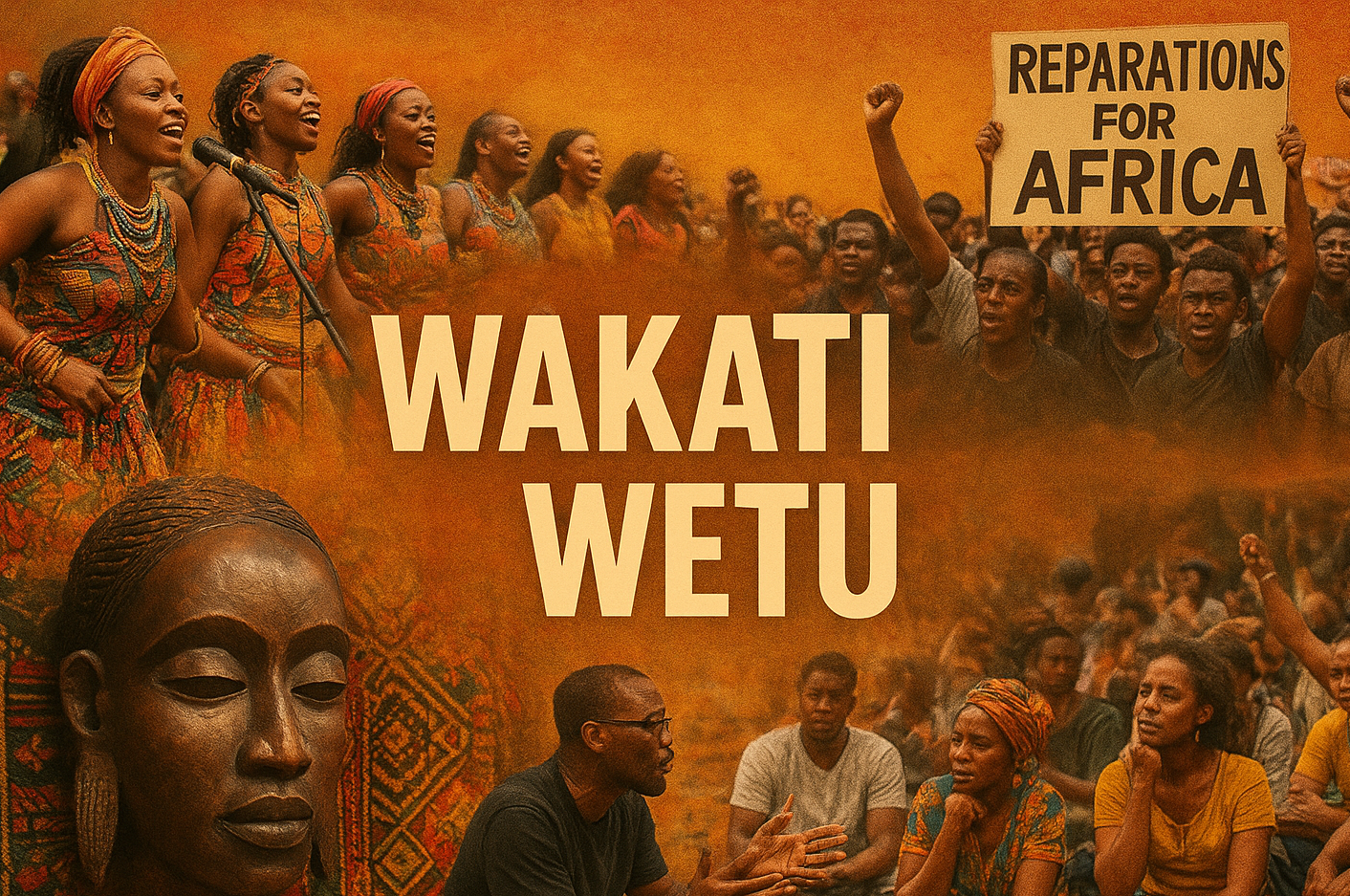Nairobi to host Africa’s first reparations festival in October
Nairobi to host Africa’s first reparations festival in October. The two-day event, titled “WAKATI WETU: It’s Our Time – To Resist, Repair and Reclaim,” will take place on October 22–23 at Entim Sidai wellness sanctuary/AI ILLUSTRATION
Nairobi is set to host a groundbreaking cultural and political gathering later this month, as hundreds of artists, musicians, activists, academics, and policymakers converge for Africa’s first major reparations festival.
The two-day event, titled “WAKATI WETU: It’s Our Time – To Resist, Repair and Reclaim,” will take place on October 22–23 at Entim Sidai wellness sanctuary.
Organisers say the festival is designed to reclaim history, resist injustice, and reimagine Africa’s future through a reparative justice lens.
Unlike traditional conferences, WAKATI WETU will combine art, activism, and scholarship in an immersive programme.
Participants will engage in conversations on climate justice, economic inequality, migration, cultural restitution, and the ongoing legacies of slavery and colonialism.
The festival will feature live music, dance, theatre, film screenings, street art, healing sessions, and storytelling spaces—an approach the organisers call “edutainment.”
A Timely Gathering
The festival coincides with a historic declaration by the African Union (AU). In February this year, AU Heads of State proclaimed 2025 the Year of Justice for Africans and People of African Descent, launching what will become a Decade of Reparations (2026–2036).
The AU’s stance follows decades of calls by African leaders for the reform of global systems that continue to marginalise Africans and their descendants.
Dr Liliane Umubyeyi, Co-Founder of African Futures Lab, one of the convening organisations, said the festival aims to shift reparations from policy circles into public imagination.
“Climate change, debt crisis, forced migration, and deepening socio-economic inequalities are not disconnected phenomena; they are contemporary expressions of a global system of racial domination that remains structurally intact,” she noted. “This festival demonstrates why reparatory justice must be intersectional.”
William Carew, Head of the Secretariat of the AU’s Economic, Social and Cultural Council (ECOSOCC), described WAKATI WETU as “unprecedented.”
“It provides a platform for multisectoral interaction among policymakers, civil society groups, cultural actors, and ordinary people,” he said. “As the civil society organ of the AU, we collaborate to hold such gatherings as testaments to the AU’s determination to bring ordinary Africans along our collective journey to achieve the Africa we want.”
A Cultural Mobilisation
While discussions on reparations have often remained confined to closed conference rooms, organisers of WAKATI WETU argue that art and culture have always carried the work of resistance and healing. By bringing these worlds together, the festival seeks to make justice “irresistible.”
The vision rests on three interconnected ideas: resisting ongoing exploitation and racial violence, repairing the damage done to economies, cultures, and communities, and reclaiming Black identity, heritage, and artefacts.
Beyond the weekend, organisers intend to host biennial Reparative Justice gatherings over the next decade, building a continental movement in tandem with the AU’s agenda.
“This year’s event is just the opener,” Dr Umubyeyi said. “The campaign for justice, healing, and accountability will continue until it is resolved. We are calling on all Africans and people of African descent to join us as we chart a path for a continent free from racial and colonial entrapments.”
With Nairobi’s reputation as a hub of activism, creativity, and cultural expression, the festival’s conveners believe the city offers the perfect setting to launch what they describe as a new era for reparative justice in Africa.


